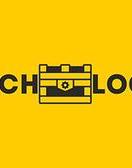Seagate may be well known for its consumer-grade hard disk drives alongside competitors like Western Digital, but the company’s long-standing focus on business grade drives is going to be taking a very sudden shift in the near future.
Enterprise experience in the consumer market
It feels like just a few short days ago that Seagate made the rounds with news of the world’s fastest hard drive back in March with what they branded as “Mach.2” actuator technology deployed in physical hard drives to produce speeds of 480 MB/s, more than twice the raw speed of its nearest competitor. It’s unsurprisingly they might choose to ride this wave of success by branching out into other fields, though solid state drives in the consumer market may not be the best comparison point for enterprise-grade physical drives.
Priced to compete with other modest consumer drives, Seagate’s new line of Barracuda SSDs have some significant ups and downs, though nothing about them looks as extreme as their foray into enterprise HDD record-breaking. The current Barracuda SSD lineup offers drives between 250GB and 2TB in size with prices between $70 and $449 U.S. UK prices have, as per usual, just swapped the dollar sign out for a pound.
So while they may be attractively priced and in a range of sizes that are useful at many levels, the technology driving them isn’t exactly on the cutting edge. These drives use fairly basic SATA connections rather than NVMe, with the latter being a much faster albeit more expensive option. They’ll still be comparable to other SATA SSDs, but the category they’re in means those looking for an upgrade from their standard SSD setup probably won’t have much of a reason to invest outside of having more raw storage space.
Considering this is Seagate’s first step into the consumer SSD market at a large scale it’s hard to fault them for offering up a more cost-efficient option rather than making the move direct to NVMe specs right out of the gate. NVMe drives perform markedly faster than their SATA counterparts but prices are often higher to match and it may be wise for Seagate to lure in consumers with budget models to gauge market interest.
Seagate also recently announced an SSD produced exclusively for the Xbox One during E3 2018 at price points that are slightly above their PC counterparts, for one reason or another. With SSD offerings in the past, this isn’t quite as exciting news as their move into consumer PC SSDs, but it should be noted that these console SSDs are boasting fairly similar prices for their performance point.
Setting the SSD market on fire with a wave of SATA-based drives this far into the lifespan of the technology isn’t terribly feasible, but Seagate’s move into consumer SSDs does mark another competitor in a field where competition generally does well to drive prices down. As long as their drive performance remains strong and they manage to scrape together a modest market share you might expect Samsung and Western Digital’s SSD offerings to start offering more lucrative discounts in the near future.

